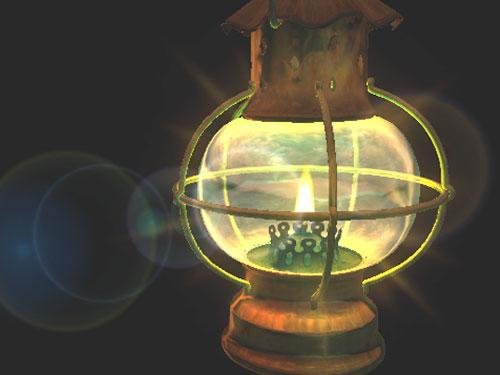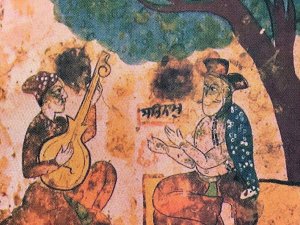 As a senior in high school, the question of “Where are you
applying for college” became a hot topic of conversation. I had no clue where
to apply for college, much less how to choose one. But I was grateful and lucky
to be in the top five of my class, so some colleges decided to reach out to me
first. One day, I received a recruitment envelope in the mail from Rice
University in Houston, Texas. Just looking at the envelope, without even opening
it, I saw a certain kind of glow about it. At first, I thought I was crazy and
put it out of my mind. But a few weeks later, another envelope from Rice came
in the mail again. There it was – that glow again. Something inside of me said,
“This is where I need to apply.”
As a senior in high school, the question of “Where are you
applying for college” became a hot topic of conversation. I had no clue where
to apply for college, much less how to choose one. But I was grateful and lucky
to be in the top five of my class, so some colleges decided to reach out to me
first. One day, I received a recruitment envelope in the mail from Rice
University in Houston, Texas. Just looking at the envelope, without even opening
it, I saw a certain kind of glow about it. At first, I thought I was crazy and
put it out of my mind. But a few weeks later, another envelope from Rice came
in the mail again. There it was – that glow again. Something inside of me said,
“This is where I need to apply.”
As an aspiring college student, you hedge your bets, pick your “top choices” and your “back-up plan.” You approach it logically, and don’t get your hopes up. I went through the motions because it was what people expected from me. But deep inside, the glow kept calling me.
Another university offered me a $10,000 scholarship to join their freshman class. In my father’s words, he and I “fought World Wars 3, 4, 5 and 6” over where I was going to college. But Rice University accepted me and the glow was undeniable. It was where I was supposed to be. Despite my Dad’s objections, despite a scholarship somewhere else – that glow had entranced my mind.
Did I know that by going to Rice University I would end up studying English Literature and Asian Studies? Did I know I would become fascinated with issues of translation between English and Asian languages, especially when it comes to poetry and spiritual texts? Did I have a clue that I would get a scholarship to study in China for a summer, because of that fascination? And did I have any idea that I would grow up, meet Yogi Bhajan, and, under his guidance and direction, put all of that academic training to use translating the poetry of the Sikh Gurus into English? Of course not. I had no idea what I wanted to major in. I did not even know what a Sikh was when I was 18.
All I know was that “it glowed.”
Over the course of my life, that glow consistently appears in times of choice. It never leads me in a direction that makes sense at the time. In fact, the glow often leads me in a direction that defies social expectations, and financial benefits. The older I have gotten, the more I recognize how crazy it might seem to focus on that glow and follow it wherever it leads. Yet, ironically, the glow has never led me astray. A little ball of subtle light, it guides my journey through my life. It takes me to experiences that are far beyond anything I could have imagined or envisioned for myself. It causes me to face challenging situations that require me to develop my strength. The purpose behind the glow’s choice can sometimes take years to fully understand. Yet, the glow insures that my life has a richness and depth that feels very satisfying.
 Sometimes, though, the glow can point in a direction that my
mind cannot handle. In those moments, fear blocks me from paying attention to
it, much less following it. The mind wants to keep me safe. And the glow might
ask me to be too vulnerable, or too different. In those moments, I ignore it.
But I have found in the end that I always regret not following it. I think
about those moments of choice and how I missed something by not trusting the
glow and taking the risk. I find myself wishing I could go back in time and do
it differently.
Sometimes, though, the glow can point in a direction that my
mind cannot handle. In those moments, fear blocks me from paying attention to
it, much less following it. The mind wants to keep me safe. And the glow might
ask me to be too vulnerable, or too different. In those moments, I ignore it.
But I have found in the end that I always regret not following it. I think
about those moments of choice and how I missed something by not trusting the
glow and taking the risk. I find myself wishing I could go back in time and do
it differently.
The glow is a very subtle presence in my life. It points things out. It does not insist. It allows my mind to choose “yes” or “no.” And it stays with me while I observe the consequences of those decisions.
I rarely talk about the glow with anyone. People just assume I am “stubborn” when I make a decision that they cannot understand. But meditating on the Mool Mantra, I found a word that shows me – maybe Guru Naanak understood this glow. He said the word Saibhang, which often gets translated as “Self-Illumined.” But here is another possible translation. Saibhang – living by the glow of your own soul.
The soul is Infinite, and one with the Light of God. It comes into time and space for its own purpose, which usually has nothing to do with what anyone “thinks.” The Spirit never consulted my mind, or anyone else’s mind for that matter, before coming into this body. It knows why it is here, what it has to do and the path it has to take. That knowing is not a “logical, analytical” knowing. It is a wholistic knowing that curls back beyond this lifetime and spins forward past this lifetime. The sense of “time” for the Spirit is much vaster than the sense of time for the mind. The mind only knows the now, plus its memories of the past and its hopes for the future. The Spirit has access to a much vaster storehouse of information, in a non-linguistic way. So the perspective and the direction of the soul will always look very different than the picture in the mind of what life “should be.”
 This quality of Saibhang
is like the soul’s lantern, illuminating the next steps on the journey. The
mind may not understand “why,” but its willing participation is required. When
the mind cannot support this guidance of the soul, I believe that is how we
create karma for ourselves. I have found within myself when I cannot complete
what the glow is showing me, what the soul is asking of me, it causes regret.
It creates a deep desire to balance what was left undone.
This quality of Saibhang
is like the soul’s lantern, illuminating the next steps on the journey. The
mind may not understand “why,” but its willing participation is required. When
the mind cannot support this guidance of the soul, I believe that is how we
create karma for ourselves. I have found within myself when I cannot complete
what the glow is showing me, what the soul is asking of me, it causes regret.
It creates a deep desire to balance what was left undone.
The more I pay attention to the glow, the more it gives me helpful cues: in conversations with people; in charting the course of my day. And like the choice to go to Rice University, that guidance has unknowable consequences that ripple far into the future. My mind may not understand what those consequences are until they reveal themselves at a later date. In that way, the quality of Saibhang is not always easy to live with. No one can see that glow but me, and I can’t explain it to anyone. I can only work to keep trusting it, and to have the experience, as life unfolds, that the soul really does know what it is doing here, and how to find its way back Home.
With Divine Light,





